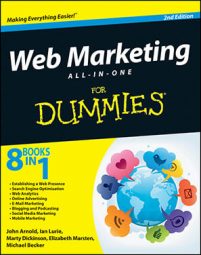Permission is required to send E-Mails to previously unused E-mail recipients for commercial web marketing purposes, there are two types of permission, Implied and Explicit.
Implied permission to send e-mail
Implied permission happens when someone shares her e-mail address with you in the course of normal business communications. The transaction implies that the purpose of giving you the e-mail address is to receive e-mails from you in reply. This level of permission isn’t recommended as a best practice, even though it’s sometimes suitable in the recipient’s view. (Read on to find out why this isn’t a best practice.)
An example of implied permission is a prospective customer who fills out an online form to obtain a quote for your services. The form includes an E-Mail Address field. The prospect shares her e-mail address within the form, expecting that you’ll use that e-mail address to send the quote.
If you send the quote and then begin sending weekly promotions without disclosing the fact that sharing an e-mail address on the quote form results in additional e-mails, however, you run the risk that your new subscriber will feel violated.
The main reason why implied permission isn’t considered one of e-mail professionalism’s best practices is that it doesn’t take much extra effort to move from implicit permission to a higher standard. In the previous example, the business owner could easily add a link to his permission policy under the E-Mail Address field. Or, he could insert text that reads
By sharing your e-mail address, you’ll receive your quote via e-mail along with concise weekly product updates to which you can safely unsubscribe at any time.
Explicit permission to send e-mail
Explicit permission happens when you include text or language disclosing how you plan to use the prospective subscriber’s e-mail address. For example, an explicit subscriber might be a website visitor who clicks a Sign Up to Receive Our Weekly E-Newsletter link and then clicks another link on the following page to submit additional information that he types into an online form.
Explicit permission also happens when prospective subscribers contact you and explicitly ask to be added to your e-mail list.
Explicit permission doesn’t have to be a lengthy or complicated process, but the benefits of obtaining explicit permission are worth having a straightforward process. Here are some examples of explicit permission that you can adapt to your own subscriber situations:
Verbal: When someone shares his e-mail address by handing you a business card or dictates an e-mail address to you during a phone conversation, you could query, Is it alright if I send you my weekly event invitation e-mail?
Written: If a prospective subscriber sends a single e-mail to you and you want to add him to your e-mail list, you could reply to the e-mail and ask, By the way, may I add your e-mail address to my list so that you can receive my monthly e-newsletter?
Physical: Some subscribers physically add their e-mail address to a guest book or sign up via a paper form.
If you have such an arrangement, you could post a professional-looking plaque or sign next to the guest book or sign-up form that states, Thank you for giving us permission to send you our weekly e-mail coupons by signing our guest book. We promise never to share your e-mail address with anyone outside the company without your permission.
Incidental: Sometimes, you can ask for explicit permission in the context of a transaction related to your e-mail information. Just be sure that the default setting on the check box is deselected (cleared), or else it’s no longer an example of explicit permission.

